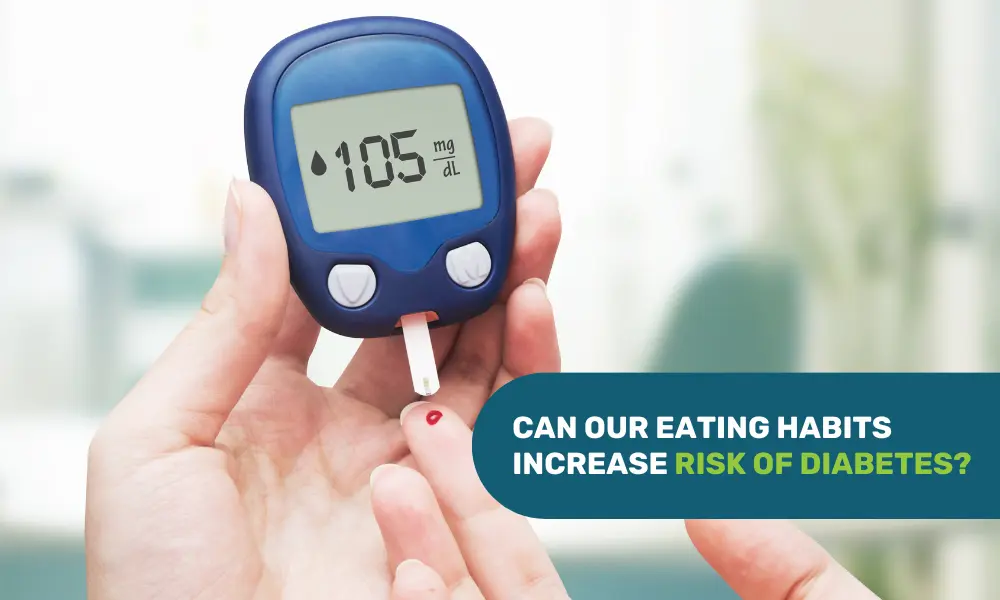Diabetes is a chronic health condition that affects millions of people around the world. It is a lifestyle disease associated with a sedentary lifestyle. We must take the necessary measures to reduce our risk of Diabetes.
This starts with making healthier dietary choices and being aware of the small mistakes we make in our daily lives, including the speed with which we eat our food. Eating too quickly can increase one’s risk of developing Diabetes.
Slow eating aids the initial stages of digestion by facilitating better chewing and giving the stomach more time to signal the brain when it is full, reducing the likelihood of overeating. In contrast, eating fast leads to a larger food intake in a short span of time, not allowing the body to register fullness and leading to over consumption.
This may lead to a rise in blood glucose levels. Consuming food at a fast speed can make it more difficult for the body to control the amount of glucose it absorbs, which, over time, may lead to insulin resistance.
Insulin resistance is a health condition in which the body’s cells lose insulin sensitivity, raising blood sugar levels. People who eat their food quickly have a higher risk of developing Diabetes. Hence, eating meals slowly might be a simple, effective way to help prevent Diabetes.
Impact of eating fast
People who eat fast may also overeat because they don’t give their brains enough time to register feelings of fullness. This excessive consumption of calories, particularly from processed and high-energy foods, is often associated with obesity and weight gain.
Obesity is often regarded as a common risk factor for type 2 diabetes. Maintaining a healthy weight is crucial for preventing Diabetes, as the risk of developing the disease dramatically increases with a rising BMI.
Eating fast can have several adverse effects, such as overeating, which can result in overindulging and consuming too many calories; poor digestion, leading to bloating, discomfort, and indigestion; and the most dreaded consequences like obesity and weight gain.
Moreover, it is also important to watch out for the kind of food we eat. Fast-food consumers may tend to choose processed items that are heavy in refined sugars and carbs, which can further affect blood sugar levels and raise the risk of Diabetes.
Slow Eating Is a Healthier Choice
Eating fast negatively impacts the body, so slow eating may be a healthier choice for various reasons. This includes better digestive system performance and improved nutritional absorption.
In addition, eating slowly gives the brain more time to recognize sensations of fullness, which may prevent us from overeating and help with weight management and blood sugar regulation.
Ways to Manage Diabetes
-
Be more physically active.
-
Eat healthy plant foods and healthy fats.
-
Skip fad diets and make healthier choices.
-
Lose extra weight.
-
Manage Stress and anxiety.
-
Eat meals slowly
-
Test blood sugar often
-
Take medicines regularly as prescribed by a doctor.
Conclusion
Eating slowly may be better than eating too quickly. Not only does it help us chew our food better and improve digestion, but it also allows the stomach to absorb all nutrients. Eating slowly also prevents overconsumption and overindulgence and still give us a sense of fullness.
Most importantly, it helps control our blood sugar level and reduces the risk of Diabetes. One must start by being aware of one’s eating speed. Take breaks in between each bite and chew food properly. Adopting small changes, like eating slowly, can help us prevent the risk of Diabetes.





